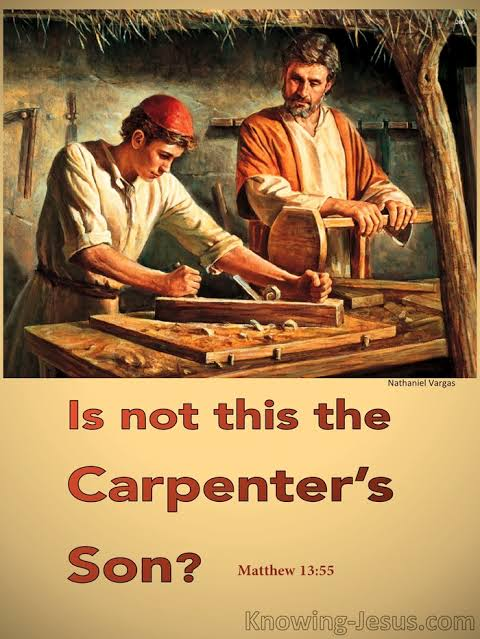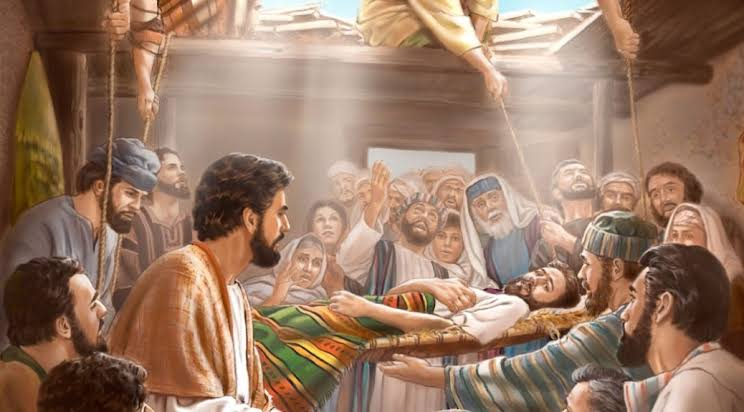Readings: Hosea 8:4-7.11-13, Ps. 115, Matt 9:32-38
Rev. Fr. Emmanuel Emenike Onyia.
ARE YOU PART OF THE LABOURERS IN GOD’S VINEYARD?
Walking
through the streets I observed how people are struggling with the things of
this passing world. I saw their passion, their determination and willingness to
achieving great things of life at the expense of things that prepares us for
eternal life. For life has become nothing for some people. Greed, corruption
and selfishness have rendered so many people into perpetual poverty and
suffering.
Thus,
reflecting on these, my mind turned towards the words of Jesus in our Gospel
passage today, when he saw the crowds and had compassion on them because they
were harassed and helpless, like sheep without a shepherd. Then he said to his
disciples, ‘The harvest is rich but the labourers are few, so ask the Lord of
the harvest to send labourers to his harvest’.
Here,
Jesus had compassion on humanity who were harassed and helpless like sheep
without a shepherd. He then says to his disciples that there is a huge harvest
waiting to be reaped. Calling on us to pray for God to send labourers into his
harvest. Therefore, more labourers are needed, for Jesus sees how humanity are
harassed and dejected, wandering aimlessly like sheep without a guiding
shepherd. And because the souls of everyone in the world are so precious to
Jesus, he needs many more labourers especially now that is obvious that the
harvest is getting richer while the labourers are getting fewer.
Hence
the harvest is as big as ever and people are getting lost and clueless as never
before. But who are these labourers? They are not just the bishops, priests, or
religious men and women. But every baptized person is called in different
capacity as God’s labourers to share the good news of Jesus Christ with those
around them.
So
each of us has a vocation, a call to save souls and build the Kingdom of God
together. Let us not be like the people of Israel in our first reading today,
who abandoned their mission and vocation and choose to sacrifice to idols. Thus
we heard the Lord saying through prophet Hosea:
“they love sacrificing; right, let them sacrifice! They love meat;
right, let them eat it! The Lord takes no pleasure in these. He is now going to
remember their iniquity and punish their sins”.
Dear
friends, the Lord desires to have faithful labourers. Are you part of the
labourers in God’s vineyard? As labourers of the Lord, how are we carrying out
this mission and mandate of Christ? How strong is our compassion towards
others? Do we know people who are harassed and helpless like sheep without a
shepherd? Let us look at them for a moment and imagine Jesus looking at them
and saying something to them. Or do we feel harassed and helpless as a result
of what we are passing through in life? Do we feel the need of Jesus’ help in
some part of our life? Then turn to him for restoration.
Remember,
as labourers whether as lawyers, Doctors, teachers, engineers, politicians, military,
businesses men and women, each one of us are called today to reach out to
people at any particular corner of the field of harvest where we are residing now,
for we may be the only person who may have access to reach out to them. Therefore, let us start from our families,
neighbours, colleagues in the office and others who we encounter in our lives,
because, we may be the only person who can brings the healing and compassion of
Jesus into their lives.
LET US
PRAY: Lord God, give us the grace and courage to be faithful labourers in your
vineyard, who will labour to bringing souls to you. We ask this through Christ
our Lord. Amen. Do have a blessed day.










